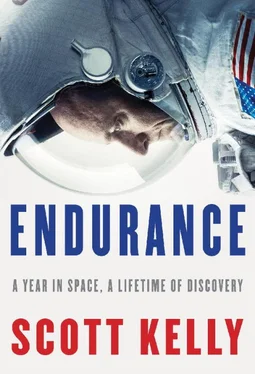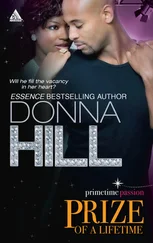The toughest part was the wall she would have to scale, seven feet four inches. Knowing that, my father built a practice wall a bit higher than the real one. At first, she couldn’t touch the top. It took her a long time before she was able to jump up and grab the top of the wall. Eventually she was able to pull herself up and get a leg over, and by honing this technique in practice sessions every day, she got to where she could scale that wall on the first try every time. The day of the test, she actually scaled the wall better than most of the men. She became one of very few women to pass the test, and that made a big impression on Mark and me: she had decided on a goal that seemed like it might not be possible, and she had achieved it through sheer force of determination and the support of people around her. I still hadn’t found a goal for myself that would give me that same kind of drive, but I had at least seen what that would look like.
My memories of school are largely of being trapped in a classroom, bored out of my mind and always wondering what was going on outside. For my entire K–12 education, I pretty much ignored my teachers and daydreamed. I didn’t know what I wanted to do, just that it would be exceptional, and I was pretty sure it had nothing to do with history, grammar, or algebra. I couldn’t concentrate on any of it anyway. I was reading way behind grade level when I was seven, so my parents asked my maternal grandmother, who was a special education teacher, to evaluate me and try to help. After working with me for a few days, she gave up and declared me hopeless.
If I was a kid now, I imagine I would be diagnosed with ADHD. But back then, I was just a bad student. I learned to squeak by on whatever native intelligence I had, even though I never did any homework. My brother remembers a day in high school when our father sat us down and explained that he could get us into a welders’ union when we graduated. He figured a trade would probably be our best option for a career because we were such poor students. Mark realized then that if he wanted to do something with his life more exciting or lucrative than welding, he had better improve his grades. So he got his ass in gear and did, starting that day. I have no recollection of this conversation, as I was probably looking out the window at a squirrel.
Meanwhile, the principal of our high school, Jerry Tarnoff, was begging me not to quit my trigonometry course, attempting to impress upon me that I had potential if I could just focus. I tried to explain to him how impossible it was for me to pay attention in that class, in any class. His words had no effect on me. I quit trigonometry. After that, whenever I saw him in the hallways, I would avoid his gaze. I was surprised by how much it bugged me to know I had let him down. Still, he never seemed to give up on me. Years later, he came to both of my space shuttle launches, and I think it meant a lot to him to see that his faith had paid off for at least one student.
The only thing that I could really connect with enough to succeed at was my work as an EMT. Mark worked with the local volunteer ambulance unit, too. Later, our dad twisted some arms (maybe literally) to get us hired at the paid ambulance service in nearby Orange, which was a rougher town than West Orange. We got the chance to see more kinds of medical emergencies and learned from them. I spent the summer after high school working as an EMT in Jersey City, which was like being thrown into the big leagues. I had found something that was meaningful to me and that I was good at. I decided to become a doctor, and I knew I could be a good one if I could just get through the ten years of training.
By screwing up my college application, I had wound up at the University of Maryland, Baltimore County. (I had meant to apply to the College Park campus.) In my freshman year, I started out with great hope that I could turn things around and be a good student, as I had every previous school year. This determination always lasted just a few days, until I realized once again that it was impossible for me to concentrate in class or to study on my own. Soon I was waking up each morning and struggling to think of a reason to go to class, knowing I wouldn’t absorb any of the professor’s lecture. Often, I didn’t go. How was I going to graduate, let alone do well enough to be accepted by any medical school?
Everything changed that afternoon when I picked up The Right Stuff. I’d never read anything like it before. I’d heard the word “voice” used to describe literature, but this was something I could actually hear in my head. Even out in the middle of the swamp, Wolfe wrote, in this rot-bog of pine trunks, scum slicks, dead dodder vines, and mosquito eggs, even out in this great overripe sump, the smell of “burned beyond recognition” obliterated everything else. I felt the power of those words washing over me, even if some of the words I had to look up in the dictionary. Perilous, neophyte, virulent. I felt like I had found my calling. I wanted to be like the guys in this book, guys who could land a jet on an aircraft carrier at night and then walk away with a swagger. I wanted to be a naval aviator. I was still a directionless, undereducated eighteen-year-old with terrible grades who knew nothing about airplanes. But The Right Stuff had given me the outline of a life plan.
3

PAUL MCCARTNEY is singing over the crackly communication system. So far we’ve heard Coldplay, Bruce Springsteen, Roberta Flack. I happen to like “Killing Me Softly,” but I can’t help but think it’s inappropriate considering the circumstances. I’m crammed in the right-hand seat of the Soyuz, acutely aware of the 280 tons of explosive propellant under me. In an hour, we will tear into the sky. For now, soft rock is distracting us from the pain of sitting in the cramped capsule.
When we got off the bus at the launch site, it was fully dark, floodlights illuminating the launch vehicle so it could be seen from miles around. Though I’ve done it three times before, approaching the rocket I was about to climb into is still an unforgettable experience. I took in the size and power of this machine, the condensation from the hypercooled fuel billowing eerily in a giant cloud, enveloping our feet and legs. As always, the number of people around the launchpad surprised me, considering how dangerous it is to have a fully fueled rocket—basically a bomb—sitting there. At the Kennedy Space Center, the area was always cleared of nonessential personnel for three miles around, and even the closeout crew drove to a safe viewing site after strapping us into our seats. Today, dozens of people were milling around, some of them smoking, and a few of them will watch the launch from dangerously close. Once, I watched a Soyuz launch while serving as backup for one of the crew, I was standing outside the bunker, just a few hundred yards away. As the engines ignited, the manager of the launchpad said in Russian, “Open your airway and brace for shock.”
In 1960, an explosion on the launchpad killed hundreds of people, an incident that would have caused a full investigation and an array of new regulations for NASA. The Soviets pretended it hadn’t happened and sent Yuri Gagarin to space the following year. The Soviet Union acknowledged the disaster only after the information about it was declassified in 1989.
By tradition, there is one last ritual: Gennady, Misha, and I climb the first few stairs heading toward the elevator, then turn to say good-bye to the assembled crowd, waving to the people of Earth one last time.
Now we wait in the Soyuz, something we’ve all experienced before, so we know our roles and know what to expect. I anticipate the excruciating pain in my knees that nothing seems to alleviate. I try to distract myself with work: I check our communication systems and introduce oxygen into the capsule with a series of valves—one of my primary responsibilities as the flight engineer 2, a position that I like to describe as the copilot of the copilot of the spacecraft. Gennady and Misha murmur to each other in Russian, and certain words jump out: “ignition,” “dinner,” “oxygen,” “whore” (the all-purpose Russian swear). The capsule heats up as we wait. The music we hear now is “Time to Say Goodbye” by Sarah Brightman, who was going to travel to the International Space Station later this year but has had to cancel her plans. A Russian pop song, “Aviator,” follows.
Читать дальше













